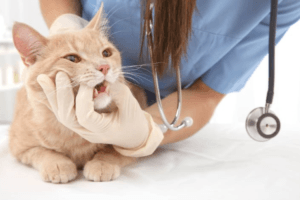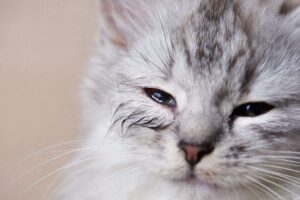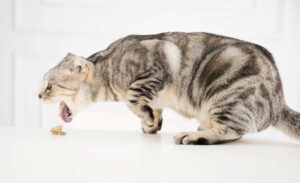Best Homemade Foods for Cats with IBD
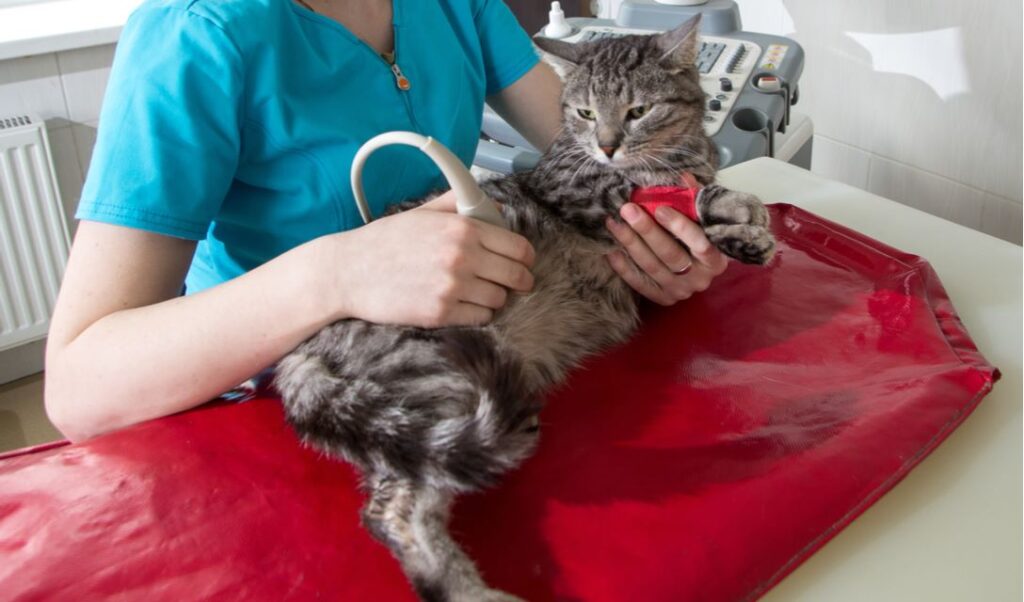
Inflammatory Bowel Disease, or IBD, is a challenging condition that affects many feline companions. This chronic gastrointestinal disorder can be particularly distressing for both cats and their owners. While IBD isn’t curable, it can still be managed effectively.
One of the key elements in managing this condition is the cat’s diet.
In this article, we will explore the best homemade foods for cats with IBD, providing valuable insights into how you can nourish your feline friend to alleviate symptoms and improve their quality of life.
Understanding IBD in Cats
Inflammatory Bowel Disease is a complex and multifaceted ailment that can affect cats of all ages, although it’s more commonly diagnosed in middle-aged to older cats. It primarily targets the gastrointestinal tract, leading to chronic inflammation.
Unlike some other gastrointestinal issues that are short-lived, IBD persists over an extended period, causing discomfort and a range of distressing symptoms for affected felines.
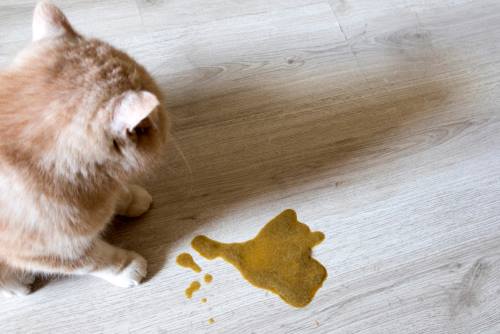
Symptoms of IBD in Cats
The symptoms of IBD in cats can vary in severity, but common signs include:
- Vomiting: Cats with IBD often vomit frequently, sometimes containing undigested food or bile.
- Diarrhea: Chronic or intermittent diarrhea is a hallmark symptom.
- Weight Loss: Due to malabsorption and reduced appetite, affected cats may lose weight over time.
- Lethargy: Cats with IBD may become lethargic and less playful.
- Abdominal Pain: Some cats exhibit discomfort in the abdominal area.
It’s essential to recognize these signs early and seek veterinary advice promptly. Untreated IBD can lead to further complications, such as nutritional deficiencies and secondary health issues.
Importance of Managing IBD in Cats
Managing IBD in cats is crucial for several reasons. First and foremost, it can greatly improve your cat’s overall quality of life. When IBD is well-managed, your feline companion will experience fewer symptoms and discomfort, leading to a happier and healthier life.
Additionally, IBD management can help prevent complications and secondary health problems. Untreated IBD can lead to conditions like pancreatitis, liver disease, or even lymphoma, which are more severe and harder to manage.
Moreover, the sooner you address IBD in your cat, the better the chances of successful management. Early intervention can slow down the progression of the disease and minimize the impact on your cat’s health. Although IBD itself cannot be directly treated, its symptoms can.
Proper care and treatment can give any Cat with IBD a long and comfortable life.
The most important part of any treatment plan for Cats with IBD, is properly managing their diet. We will now discuss what foods are suitable for cats with IBD, and which are not, followed by some homemade recommendations.
The Role of Diet in Managing Cat IBD
In this section, we’ll explore the crucial role that diet plays in the management of IBD in cats and how specific nutrients and ingredients can help alleviate the symptoms associated with this condition.
When crafting a diet for a cat with IBD, several key components should be considered:
- High-Quality Protein: Cats are obligate carnivores, and they require a diet rich in high-quality animal protein. Some protein sources sources like chicken, beef, and fish are more likely to cause negative reactions in cats with IBD, or act as allergens. As such, it is better to use other sources, such as rabbit, pork, venison, or duck. This will require a little trial and error to see which proteins your cats react favorably too (and most importantly, which they will tolerate eating).
- Low-Fiber Content: A diet low in insoluble fiber is generally recommended for cats with IBD. Fiber can be harsh on the digestive tract, potentially exacerbating inflammation. It is also recommended to keep plant-based material low.
- Limited Carbohydrates: Reducing the carbohydrate content in your cat’s diet can be beneficial. Cats have limited ability to digest carbohydrates, and excessive carbs may contribute to digestive issues.
- Omega-3 Fatty Acids: Omega-3 fatty acids, commonly found in fish oil, can help reduce inflammation and alleviate some of the symptoms associated with IBD.
- Probiotics and Prebiotics: Incorporating probiotics (good bacteria) and prebiotics (food for good bacteria) into your cat’s diet may help maintain a healthy gut microbiome, which can be disrupted in IBD.
- Hydration: Cats with IBD are prone to dehydration due to diarrhea and vomiting. Ensure that your cat has access to clean, fresh water at all times. You can also opt to give your cat wet food, which has a higher moisture content.
Using these guidelines, you may choose to find commercial foods that meet these requirements, or you may choose to prepare your own homemade cat food.
Best Homemade Foods for Cats with IBD
Homemade foods for Cats with special conditions (such as IBD) are often recommended as they lack any extra fillers or ingredients (often found in commercial foods or big brands) which can trigger adverse reactions in your cat.
In this section, we will discuss various components of a homemade diet for felines with feline inflammatory bowel disease.
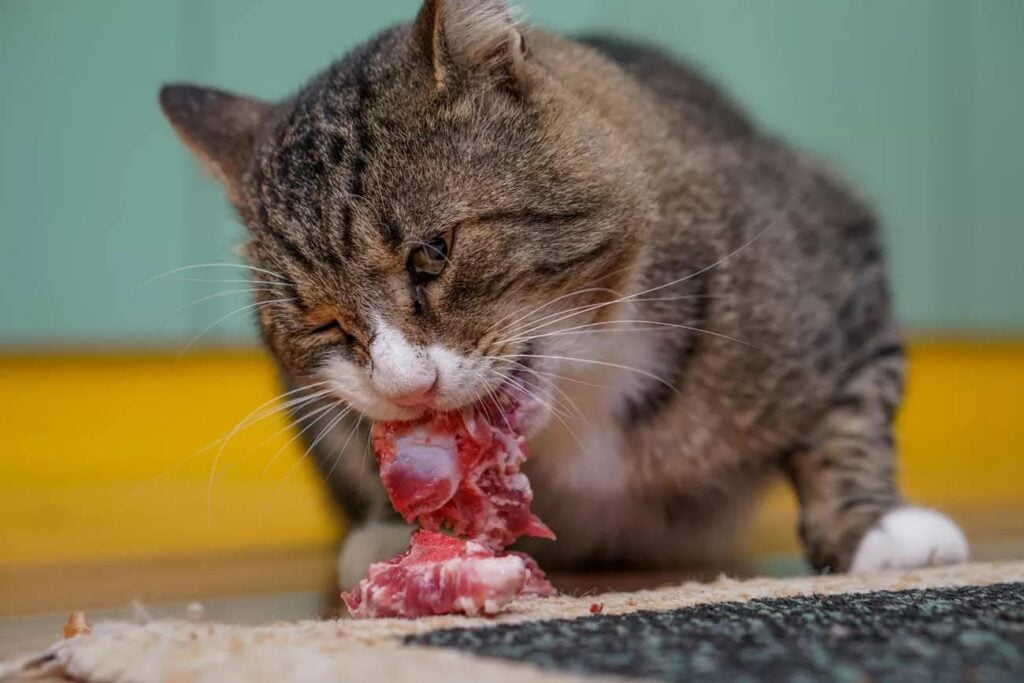
Raw Diet
One very common homemade approach that has benefited several cats with IBD, is the use of a completely Raw Meat Diet. The lack of any additives and 100% natural meat often helps the digestion, and significantly reduces any diarrhea or vomiting associated with IBD.
As discussed earlier, you should prioritize “novel proteins” such as rabbit, venison, pork, or turkey. You may also feed your cats other meats if they show no adverse reaction to them. The ideal approach is to try everything, and see what works out best.
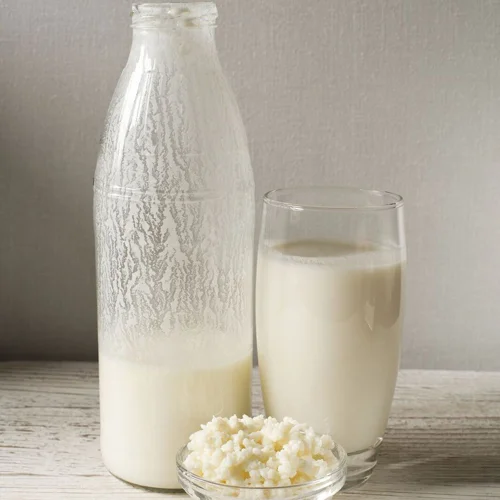
Probiotics and Prebiotics
Feeding your cats with foods containing Probiotics and Prebiotics is a great way of boosting their gut bacteria and improving digestion.
A great choice for Probiotics is fermented milk. Although cats are usually lactose intolerant, the process of fermentation removes most of the lactose from the milk. You can try experimenting with various types of milk, such as goat milk (a popular choice amongst cats with IBD) to see which your cat prefers.
If you don’t feel confident or are unable to make this at home, you can turn to commercial options instead.
The main food sources for Prebiotics include legumes, fruits, whole grains, vegetables and chicory, amongst others. However, for cats with IBD these foods can cause problems in digestion resulting in inflammation. As such, it is better to not to feed your cat any of these, and instead focus on directly feeding your cats Probiotics through foods such as fermented milk (Remember, Prebiotics are just foods that create Probiotics)
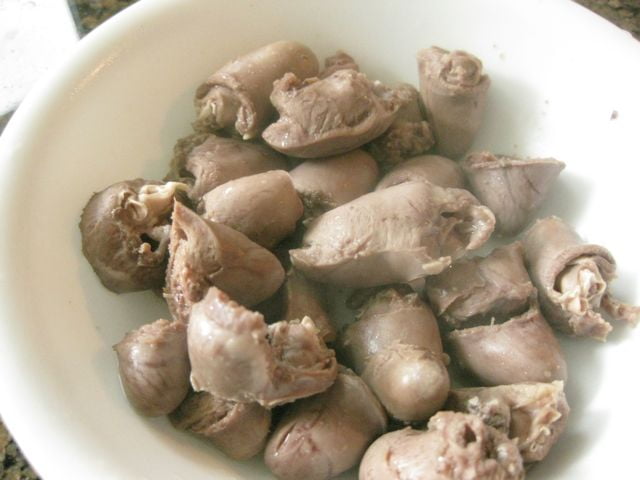
Organ Meat
Organ meat is also highly recommended for cats with ibd. They are very dense in nutrients and protein, and are also easily digestible. Organ meats like gizzards, hearts, giblets, and livers are common choices. You may choose provide these raw to your cat, or cook them before serving. Cooking them has the advantage of removing any harmful bacteria. However, some cats may respond better to a raw diet.
The best way to cook organ meats is to chop them up into bite sizes and boil them. No need to add any extra additives.
Conclusion
Feline Inflammatory Bowel Disease (IBD) is a challenging condition that affects many feline companions, causing discomfort and distress. Although IBD isn’t curable, its symptoms can be managed effectively through proper care and treatment.
Diet plays a pivotal role in managing IBD in cats, and it’s essential to make thoughtful choices. This article has provided a comprehensive guide for the best homemade foods for cats with IBD. By following the principles of high-quality protein, low-fiber content, limited carbohydrates, Omega-3 fatty acids, probiotics, and prebiotics, you can help your feline friend find relief from their digestive troubles.
Remember that each cat is unique, and what works best may require a little trial and error. Consult with your veterinarian to determine the most suitable approach for your cat’s specific needs.
